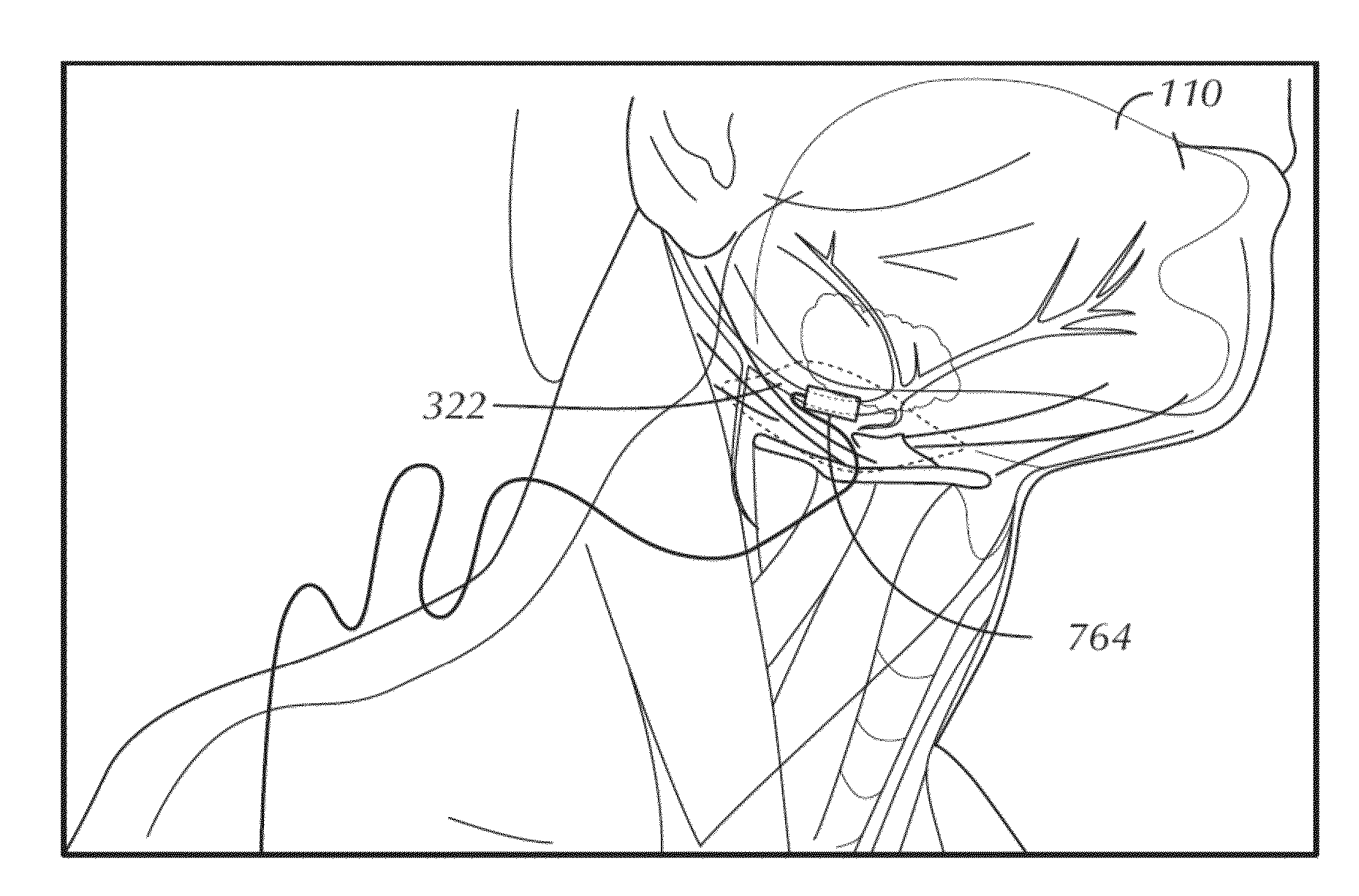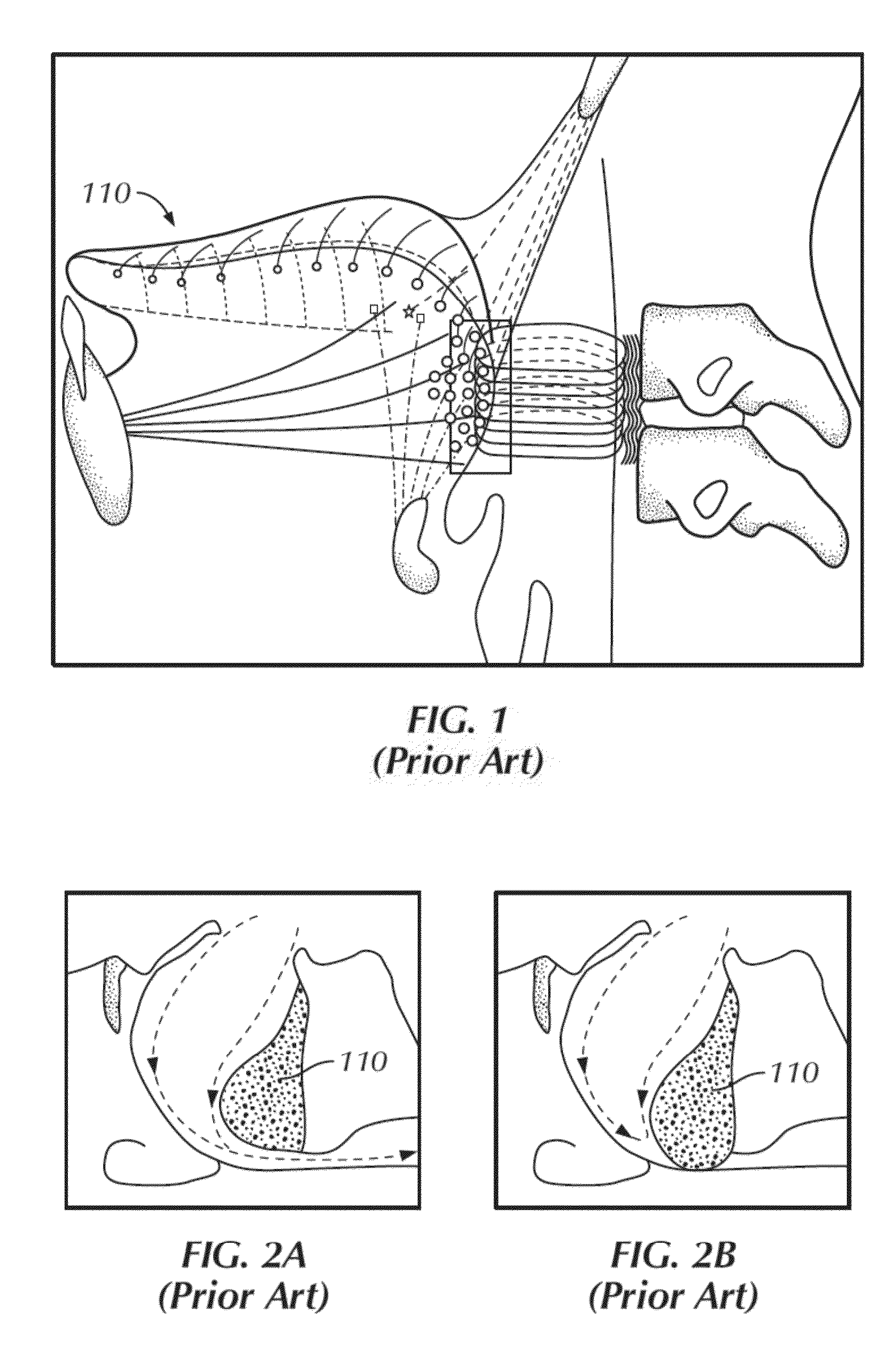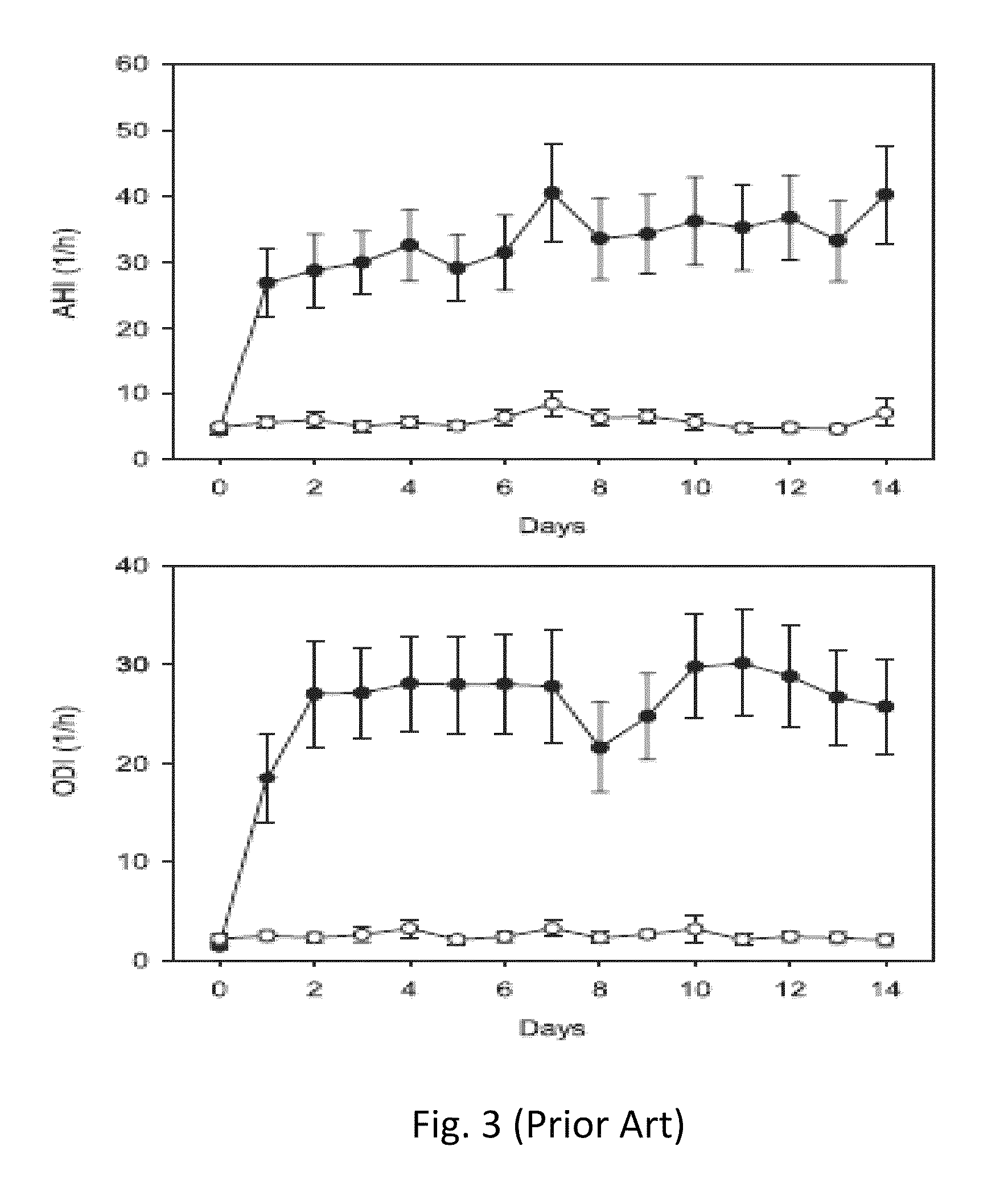Stimulation of a hypoglossal nerve for controlling the position of a patient's tongue
a hypoglossal nerve and tongue technology, applied in the field of stimulation of a hypoglossal nerve for controlling the position of a patient's tongue, can solve the problems of insufficient muscle tone of the tongue, insufficient oxygen intake, and interruption of one's sleep (episodes or micro-arousals), so as to and reduce the application of electric signal
- Summary
- Abstract
- Description
- Claims
- Application Information
AI Technical Summary
Benefits of technology
Problems solved by technology
Method used
Image
Examples
example 1
[0056] pre-defined days of operation (On Monday, Wednesday and Friday; Off Thursday, Friday, Saturday and Sunday), biweekly schedules, etc.;
example 2
[0057] randomized days of operation; and
example 3
[0058] randomized session use not tied to a day.
[0059]Exemplary methods of Intra-Session Periodicity or Intermittency may include:
[0060]Example 1: a device having 6 contacts, each cycle includes turning each contact On then Off once where the timing is staggered and the use is overlapped (contact 1 is turned on for 5 seconds at time 0, contact 2 is turned on for 5 seconds at 4 seconds in, contact 3 is turned on for 5 seconds at 9 seconds in, etc), stimulation is on for 3 cycles, off for the duration that 2 cycles would occupy, then this repeats;
[0061]Example 2: on for 3 cycles, off for 4 cycles, on for 2 cycles, off for one cycle (stochastic or randomized periodicity);
[0062]Example 3: randomization only applied to cycles that are on (on for 3 cycles, off for 2 cycles, on for 2 cycles, off for 2 cycles, on for 5 cycles, off for 2 cycles . . . ); and
[0063]Example 4: randomization only applied to cycles that are off (on for 3 cycles, off for 2 cycles, on for 3 cycles, off for 5 cycles,...
PUM
 Login to View More
Login to View More Abstract
Description
Claims
Application Information
 Login to View More
Login to View More - R&D
- Intellectual Property
- Life Sciences
- Materials
- Tech Scout
- Unparalleled Data Quality
- Higher Quality Content
- 60% Fewer Hallucinations
Browse by: Latest US Patents, China's latest patents, Technical Efficacy Thesaurus, Application Domain, Technology Topic, Popular Technical Reports.
© 2025 PatSnap. All rights reserved.Legal|Privacy policy|Modern Slavery Act Transparency Statement|Sitemap|About US| Contact US: help@patsnap.com



